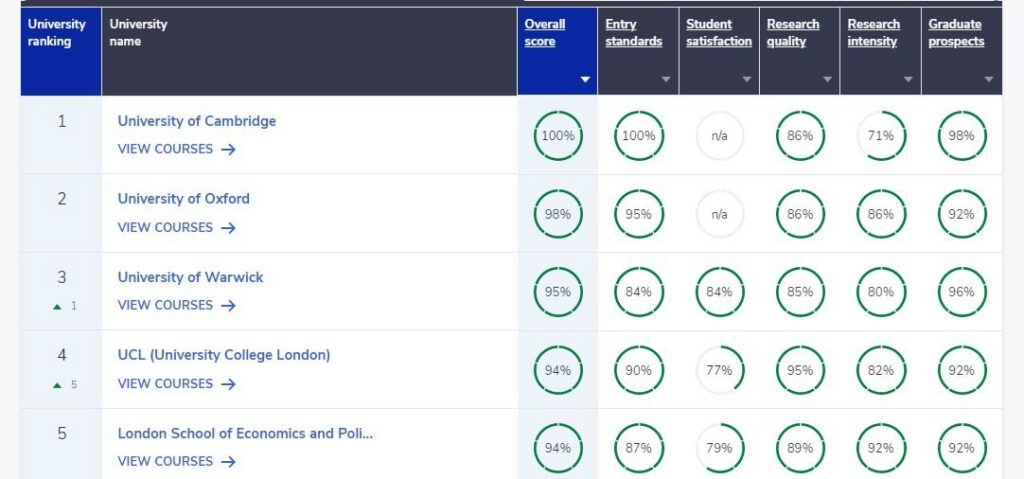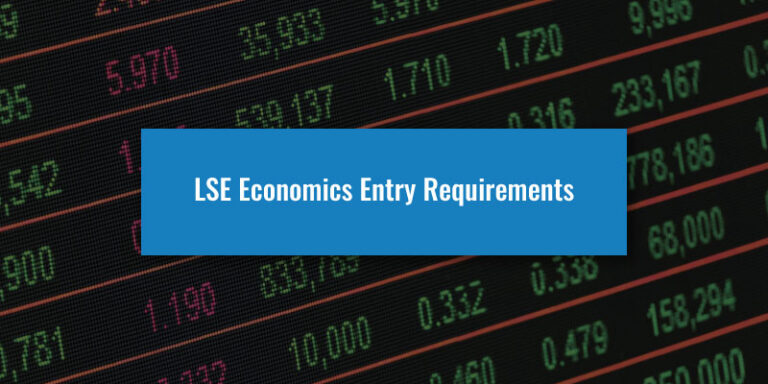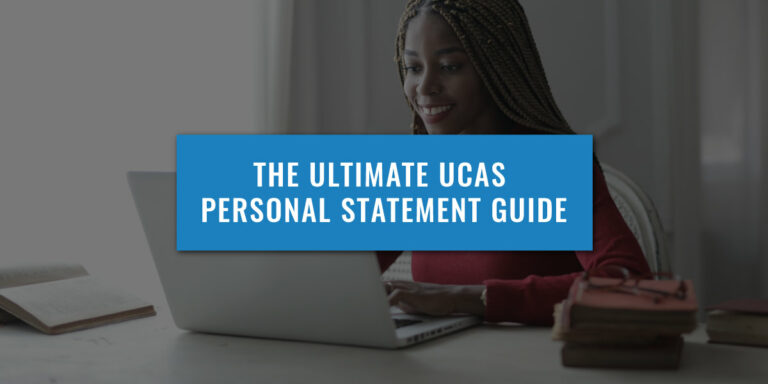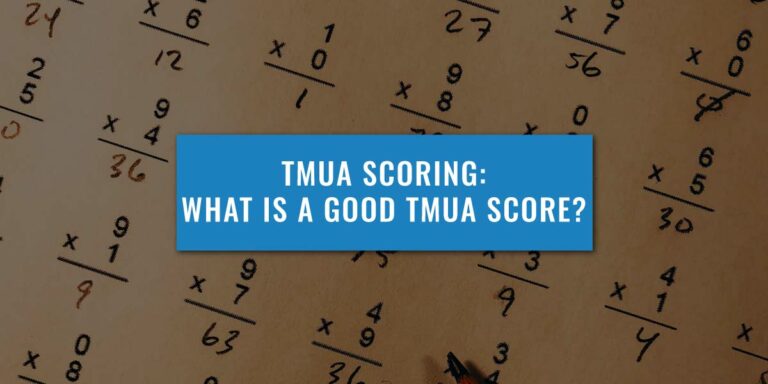An Economics degree, especially from a prestigious university, can prepare you for a wide range of career options from developing subject-specific and favourable transferable skills.
There are nearly 80 UK universities that offer Economics degrees and with 34,000 Undergraduate Economics students enrolled in 2018, this equates to many students entering the economics job market each year. Fortunately, the skills gained through an Economics degree means that graduates are valued across many different sectors, not just those that relate to the economy.
What does this mean for career pathways? In this article, you will find out the typical career options for Economics graduates that are directly and indirectly related to the degree, and whether you should consider further study in Postgraduate Economics.
What is Economics?
The Economist defines economics as the study of how society uses its scarce resources. The main point to remember here is economics is not just about money, it is really a social science that examines the ways people produce, use and distribute resources.
The broad nature of this field takes Economics students and Economists through other subjects including politics, behavioural sciences, marketing and even geography, with a strong emphasis on problem-solving, data and statistical analysis and verbal and written communications.
As mentioned earlier, there are a plethora of Economics degrees in the UK. From the Complete University Guide’s Economics League Table for 2022, we can see below that Oxbridge dominates the top two spots, followed by Warwick, UCL and LSE. All have high graduate prospects too.
Economics tends to be a very competitive degree. For Economics and Management at Oxford in 2021, there were 1,732 applicants and only 90 were given an offer. This means that around 5% of applicants were successful. In 2021, Cambridge had 1,320 applicants applying for Economics and 165 of those were given an offer. This makes the percentage of successful applicants higher than Oxford as it is around 12%, but still a low percentage when compared with other degrees at Oxford, such as History which sees a 23% success rate.
Aiming for a career in economics after you graduate? We’ll help you secure your dream Economics offer first.
Writing the perfect Personal Statement, scoring highly on the TMUA or TSA and interviewing like a pro is how you get your dream Oxbridge Economics offer. Here at UniAdmissions, we are specialists in supporting you with each of these steps and more.
Discover how our Economics Premium Programme can triple your chances of success by booking your Free Consultation Session today.
Economics Degree Skills
A degree in Economics provides students with the opportunity to develop a broad range of very employable skills. Students gain high level mathematical and statistical skills, with the ability to apply economic models and principles to problems. The main skills Economics students develop are:
Communications
Written and verbal communication skills are developed through assignments, discussions and exams during university. This skill is important because it enables you to convey complex theories and models.
Data Analysis
Analysis skills are vital during an Economics degree and for the workplace. Analytical skills help you improve your research methods, draw conclusions from data and make informed decisions and recommendations.
Problem Solving
Economics is notoriously a complex subject. During your degree, you will work through case studies and historical data. Problem-solving skills are required to gather and extract the right information, draw conclusions and make recommendations.
Cultural Awareness
Success At School provides a good explanation of why cultural awareness is a useful skill. They suggest that as we live in a connected world where even the smallest of companies can trade overseas, studying Economics develops a good knowledge and understanding of how different cultures perceive social, political and economic events.
Mathematical Proficiency
This skill is possibly the most obvious one. Being able to handle and manage complex data and then apply mathematical and statistical analysis methods is expected of Economics graduates. In the workplace, you will likely be studying figures and statistics, looking for trends to then make recommendations for the next course of action.
Other skills developed during an Economics degree that are vital for most economics-related careers are time management skills (completing specific tasks and projects under tight deadlines) and computing skills (being comfortable and confident with specialised software).
Economic Degrees often require you to sit an Admissions Test. These tend to be either the TSA or TMUA. Both Admissions Tests are used by universities to identify your skills that are related to Economics.
TSA
For example, Oxford uses the TSA to explore candidates’ thinking skills. These include problem-solving and critical thinking skills as Oxford considers these to be the generic academic skills needed to successfully study undergraduate or postgraduate Economics.
TMUA
Cambridge uses the TMUA to assess applicants’ mathematical skills knowledge.
According to the World Economic Forum’s Future of Jobs Report, analytical thinking and complex problem-solving skills are part of the top 10 skills that employers will find increasingly important by 2025, see their graphic below.
Access "The Big Book Of Oxbridge Applications" For FREE
There’s a lot to be prepared for in your Oxbridge Economics application, so download The Big Book Of Oxbridge Applications for free here to learn about every step of the process. Through over 350 pages, you’ll find:
- Over 40 admissions test practice questions
- 28 example Oxbridge Personal Statements
- Interviews with Oxbridge students and graduates
- Additional downloadable resources
Fill in your details below to claim your digital copy today!
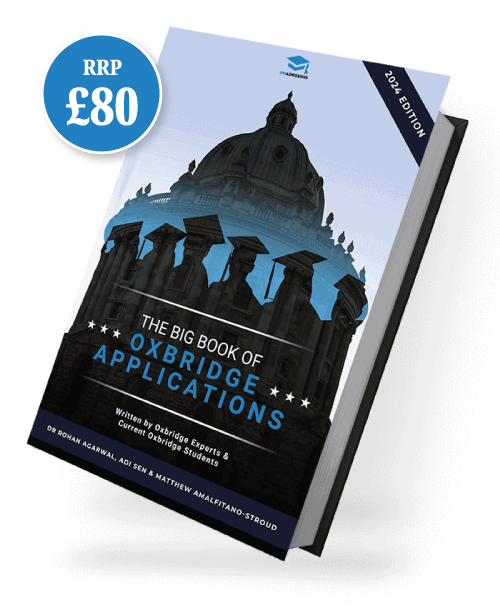
economics career paths
You will be relieved to hear that studying Economics opens the doors to a wide variety of careers that are not just in finance. As we mentioned earlier, the nature of the degree allows students to develop a wide range of transferable and employable skills. For example, learning economic principles and models can often be applied to problems in businesses.
Prospects present a list of some of the career options that are directly related to an Economics degree. The list includes:
Actuarial Analyst
Actuarial analysts use statistical formulas to assess risk through spreadsheets and specialist software, and then create statistical reports that non-specialists can understand. Frequently, actuarial analysts specialise in insurance, savings and investments and pensions/employee benefits.
Chartered Accountant
Chartered accountants aim to maximise the profitability of a client or employer. They work in a range of organisations, from large public practice firms to small not-for-profit organisations. Responsibilities can include general financial advice, financial planning and forecasting and reviewing a company’s systems and analysing the risk.
Economist
Economists collect, study and analyse data to provide specialist recommendations to a range of organisations. As part of their work, they may use statistical analysis and specialist software to produce forecasts of economic trends for government agencies, investment groups and even higher education establishments. An example of a specific responsibility could be preparing briefs for Government Ministers and writing answers for press conference questions related to the economy.
Other career examples include:
- Compliance officer
- Data analyst
- External auditor
- Financial risk analyst
- Political risk analyst
- Risk manager
- Statistician
- Stockbroker
What do universities say?
As we saw earlier in the UK University League Table for Economics, Cambridge and Oxford take the top two spots. So what do their graduates go on to do?

Cambridge University
Starting with Cambridge, the University says that many of their Economics graduates go on to professional training in chartered accountancy, actuarial work and similar fields. Others are employed by financial institutions, or as professional economists in industry, government and management consultancy.

Oxford University
Oxford’s Economics degree is called Economics and Management. They write that their recent graduates have secured positions in banking and finance, consultancy, research, journalism, industry, the Civil Service and teaching as well as a wide range of other sectors.

The London School of Economics and Political Science
Using a non-Oxbridge example, LSE state that their Undergraduate and Postgraduate Economics degrees are popular with a wide range of recruiters, e.g. strategy and management consultants and investment banks in general, as well as a broad range of other commercial enterprises, public sector and not for profit employers.
Graduate Salaries
According to Top Universities, Economics graduates from the LSE earn an average salary of £55,200 five years after graduating, with the top 25% earning more than £120,000. However, Economics graduates from Cambridge (which ranks number one in the league tables) earn a higher average salary five years after graduating of £61,000. Interestingly though, the most lucrative degree for the highest salary is Economics and Management at Oxford where the average salary after five years of graduating is £71,700.
Alternative career paths with an Economics Degree
There are a number of non-economics related career paths that an Economics degree’s transferable skills can be applied to:
Quantity Surveyor
Quantity surveyors manage the costs related to building and civil engineering projects. Their main responsibilities include minimising the costs and risks to enhance the value for money, whilst achieving the required legal standards.
Business Development Manager
Business development managers grow businesses by identifying new opportunities to generate revenue and improve profitability. Day to day work can include working with strategic planning and enhancing the operation of the business and its reputation. This can be in most types of businesses, from education to manufacturing.
Policy Officer
Policy officers research and analyse their findings to advise businesses, governments and think tanks. Types of policy work can include supporting local governments to develop and implement public policies and advise elected officials like MPs. Responsibilities for a Policy officer can involve keeping up to date with social, political and economic developments and then providing briefs to update officials.
Other examples include:
- Civil Service fast streamer
- Data scientist
- Diplomatic service officer
- Local government officer
- Management consultant
Do you need to study Postgraduate Economics?
Choosing further study really depends on your goals and aims. For example, Postgraduate study in Economics is not essential to secure a particular career path, but it can offer an advantage for those applying for more competitive roles. Aside from career advantages, further study gives students the opportunity to specialise in certain areas of the field.
Top Universities suggest that the difference between Undergraduate and Postgraduate Economics is the extent of mathematical sophistication and the opportunity to undertake your own substantial research project. These research projects can be advantageous if you go straight into a research-heavy role.
Find out for yourself
If you are considering studying Economics and would like to know more about the career possibilities after study, make sure to utilise open days.
During open days, ask tutors what graduates have gone on to do and see if this interests you. You may find new economics career paths that you had not heard of before. Also, check to see what facilities they have in place to support upcoming graduates, such as careers guidance, internships or experience that will look great on your CV alongside your Economics degree.
Think about what you would like to know, and then make a list of questions that helps you find what you are looking for, like the questions below. For more question ideas for an Economics Open Day, read through our article on what to ask during the day here.
- What careers have recent Economics graduates gone on to do?
- How many Economics students stay on for postgraduate study?
- What is your careers guidance like, do you have opportunities for internships or work experience?
Below, you will find one of our recent Economics Open Days. At UniAdmissions, we run free and interactive Open Days to help students and parents fully understand the university admissions process, the latest changes and how to ensure you tackle your application in the most effective way. Our Open Days are led by admissions experts and you can find the schedule for upcoming Open Days here.
Like the sound of these career pathways? Then it’s time to perfect your University Economics application.
At UniAdmissions, we are experts at maximising your chances of gaining a place to study Economics at Oxford and Cambridge. Our elite group of Economics Tutors provide TSA and TMUA specialised support, teach you how to Interview effectively and help you write the perfect Personal Statement.
Our Economics Premium Programme gives you everything you need to ultimately gain your dream offer and triples your chances of success, so book your Free Consultation Session today to find out how you can enrol.

